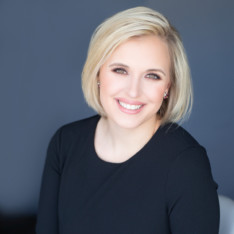Indiana’s Colleges Are Not Letting Students Flourish
Freedom on university campuses across the country is under fire. With social justice advocates exerting considerable pressure on school administrations, students in certain colleges are suffering the consequences of the stifling environment.
But as speech deemed unwanted, politically incorrect, or even tasteless is banned, students miss a great opportunity to learn from the exchange of ideas and even strengthen their own points of view.
In Indiana, the outlook of freedom of speech on campus is particularly troubling, with only 3 out of 16 universities upholding policies that protect free speech.
The Foundation for Individual Rights in Education (FIRE) maintains a list of colleges and universities in each state and gives them different ratings depending on how good their speech policies are. Two colleges are particularly bad on freedom of speech: the private University of Notre Dame and DePauw University.
At DePauw, FIRE explains, certain codes prevent students from using university computers to research “offensive, unlawful or inappropriate content.” While the school is private and should be seen as an independent institution that is able to set its own policies, FIRE stated that the “exceedingly broad and restrictive policy … leaves students and faculty vulnerable to punishment for a wide range of expression that, off campus, would be protected by the First Amendment.”
Notre Dame’s policies are just as restrictive, prohibiting students from using “University resources to post, view, print, store, or send obscene, pornographic, sexually explicit, or offensive material, except for officially approved, legitimate academic or University purposes.”
Other universities such as Indiana State University, University of Southern Indiana, and all Indiana University campuses — all public colleges — were given yellow speech-code ratings because of their unconstitutional speech policies.
According to FIRE, their free-speech-zone policies can be easily abused, forcing students with the “wrong” ideas from being able to openly discuss their views with colleagues while on campus.
As FIRE explains, public colleges should be harshly criticized for upholding policies that go against the Constitution.
In the past, the Supreme Court upheld the idea that First Amendment protections are essential in keeping America free, openly stating that public college campuses must uphold freedom-of-speech protections.
In one of the first cases of its kind, Sweezy v. New Hampshire, the court ruled that “to impose any strait jacket upon the intellectual leaders in our colleges and universities would imperil the future of our Nation.” And in one of the most recent cases involving freedom of speech on campus, the court ruled that “First Amendment rights of speech and association extend to the campuses of state universities.”
If Indiana’s colleges believe they are above the law, we must first remind them that protecting speech rights, no matter how offensive the speech in question might be, is not just guaranteed by the Constitution. It’s also beneficial to students of all backgrounds.
As John Stuart Mill explained in his celebrated On Liberty, our ability to express ourselves freely is intimately connected to human progress.
When we restrict diverse ideas, he writes, we also limit ourselves in our findings, going as far as keeping ourselves from ever discovering the truth: “If the opinion is right, they are deprived of the opportunity of exchanging error for truth: if wrong, they lose, what is almost as great a benefit, the clearer perception and livelier impression of truth, produced by its collision with error.”
Colleges are meant to be the cradle of discovery. If Indiana universities want to keep producing thinkers, not followers, they must act accordingly.










